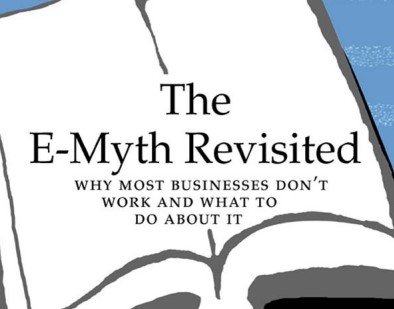Why Small Businesses Fail and How to Overcome the Challenges
The sources identify a common misconception about small businesses: that they fail because their owners lack knowledge of finance, marketing, management, or operations. **The real reason most small businesses fail, according to the sources, is that they are run by Technicians, not Entrepreneurs. **
The Technician’s Fatal Assumption
- The “E-Myth,” or Entrepreneurial Myth, is the belief that small businesses are started by entrepreneurs to make a profit. However, the reality is that most small businesses are started by Technicians who are good at a particular skill or trade.
- These Technicians suffer from an “Entrepreneurial Seizure,” where they decide to start a business based on the fatal assumption that knowing the technical work of a business is the same as understanding how to run a business.
- This assumption is a liability because it prevents Technicians from focusing on the strategic work of building a business that can operate independently of them. Instead, they become trapped working in their business, not on it.
The Three Phases of a Small Business
The sources use the analogy of a business life cycle to illustrate the challenges of Technician-run businesses:
- Infancy: The business is completely dependent on the owner, who is primarily focused on doing the technical work. They are often overwhelmed by the demands of wearing multiple hats.
- Adolescence: The owner hires employees to alleviate the workload, but often struggles to manage them effectively. They may get stuck in a cycle of hiring and firing, or limit the business’s growth to stay within their comfort zone.
- Maturity: Very few businesses reach this stage. Mature companies operate as well-oiled machines with systems in place to ensure consistent results. The owner can focus on strategic work, and the business is not dependent on any one person.
Overcoming the E-Myth: The Entrepreneurial Perspective
To overcome these challenges and build a successful business, the sources recommend adopting an Entrepreneurial Perspective:
- Work on the business, not in it. View the business as a separate entity, a product to be developed and eventually sold. This requires focusing on strategic work like systematizing operations, creating a strong brand, and developing a marketing strategy.
- Develop a Franchise Prototype. Imagine you are franchising your business, meaning it must be replicable and operate successfully without your direct involvement. This requires documenting processes, creating operations manuals, and standardizing customer experience.
- Prioritize systematization over individual skill. Hire ordinary people and empower them to achieve extraordinary results through well-defined systems and processes.
- Embrace a mindset of continuous improvement. Constantly seek ways to innovate, quantify results, and orchestrate a seamless customer experience.
By shifting from a Technician’s Perspective to an Entrepreneurial Perspective, small business owners can escape the cycle of chaos and build a thriving business that can ultimately provide them with the freedom and fulfillment they desire.
[Source: The E-Myth Revisited – Michael E. Gerber]


